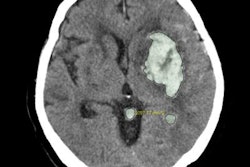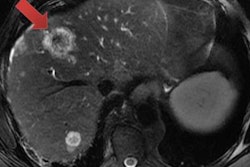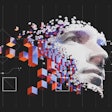Dear Artificial Intelligence Insider,
If you attended RSNA 2017, you already know that artificial intelligence (AI) was the big story in Chicago, both in the exhibit halls and on the scientific program.
AI was seemingly everywhere on the exhibit floor at McCormick Place. Many vendors enthusiastically discussed their technology and plans for AI, with a notable trend toward its use in workflow-enhancing applications. The RSNA's new Machine Learning Showcase was also a big hit.
Many AI-oriented scientific sessions were standing room only, and at least one refresher course was completely filled to capacity. In well over 100 presentations, researchers from around the world described the potential and utility of AI in a variety of clinical scenarios.
While the "black box" nature of deep-learning algorithms has been cited as a barrier to adoption in medical imaging, an algorithm that can visually show why it made its diagnosis can go a long way toward building radiologist confidence in its findings. In a scientific presentation, researchers from Columbia Asia Radiology Group in India and imaging AI software developer Qure.ai shared their experience in developing a deep-learning algorithm that can detect specific abnormalities on chest x-rays and, importantly, also provide explanatory "heat maps" to highlight the key areas on the images. Our coverage of this talk is this newsletter's Insider Exclusive, which you can access before our regular members.
In other articles from RSNA 2017, researchers from Harvard Medical School developed a machine-learning algorithm that yielded a 95% accuracy rate for predicting the KRAS mutation status of tumors in patients with metastatic colon cancer. How did they do it? Click here to find out.
Dutch researchers also shared how their deep-learning algorithm could automatically calculate coronary artery calcium scores from lung cancer screening CT exams, facilitating risk stratification in these patients. You can read our report by clicking here.
Also, researchers from the University of California, San Francisco reported that a deep-learning algorithm can accurately assess a lung nodule's risk of malignancy with a high degree of accuracy. Click here for our coverage.
Stay tuned in the coming weeks for additional AI news from RSNA 2017.
In other featured stories, researchers from Stanford University recently reported that their AI algorithm -- called CheXNet -- can accurately detect 14 types of medical conditions on chest x-ray images. It even performed better than expert radiologists, according to the authors. Click here to get all of the details.
Stanford researchers have also developed a high-performing AI algorithm for estimating skeletal maturity from pediatric hand radiographs. You can access our article by clicking here.
A deep-learning algorithm can accurately classify liver masses into five categories, according to a study from Japan. Click here to learn more.
In addition, AI is showing promise for bridging the experience gap for characterizing focal liver lesions on contrast-enhanced ultrasound studies. How well does the computer-aided diagnosis system perform? Click here for our coverage of this multi-institutional study.
Machine learning can predict how long patients may have to wait for their imaging exams, according to researchers from Massachusetts General Hospital (MGH). Find out how this knowledge can improve practice management and the patient experience by clicking here.
Another group from MGH found that a breast AI algorithm could reduce the number of unnecessary surgeries by 30%. Click here to learn more about its potential to provide more targeted, personalized healthcare for women with high-risk breast lesions.
Finally, researchers from the Mayo Clinic and Arizona State University have concluded that deep learning may be able to obviate the need for many thyroid nodule biopsies. Click here for the details.
Is there a story you'd like to see covered in the Artificial Intelligence Community? Please feel free to drop me a line.




















